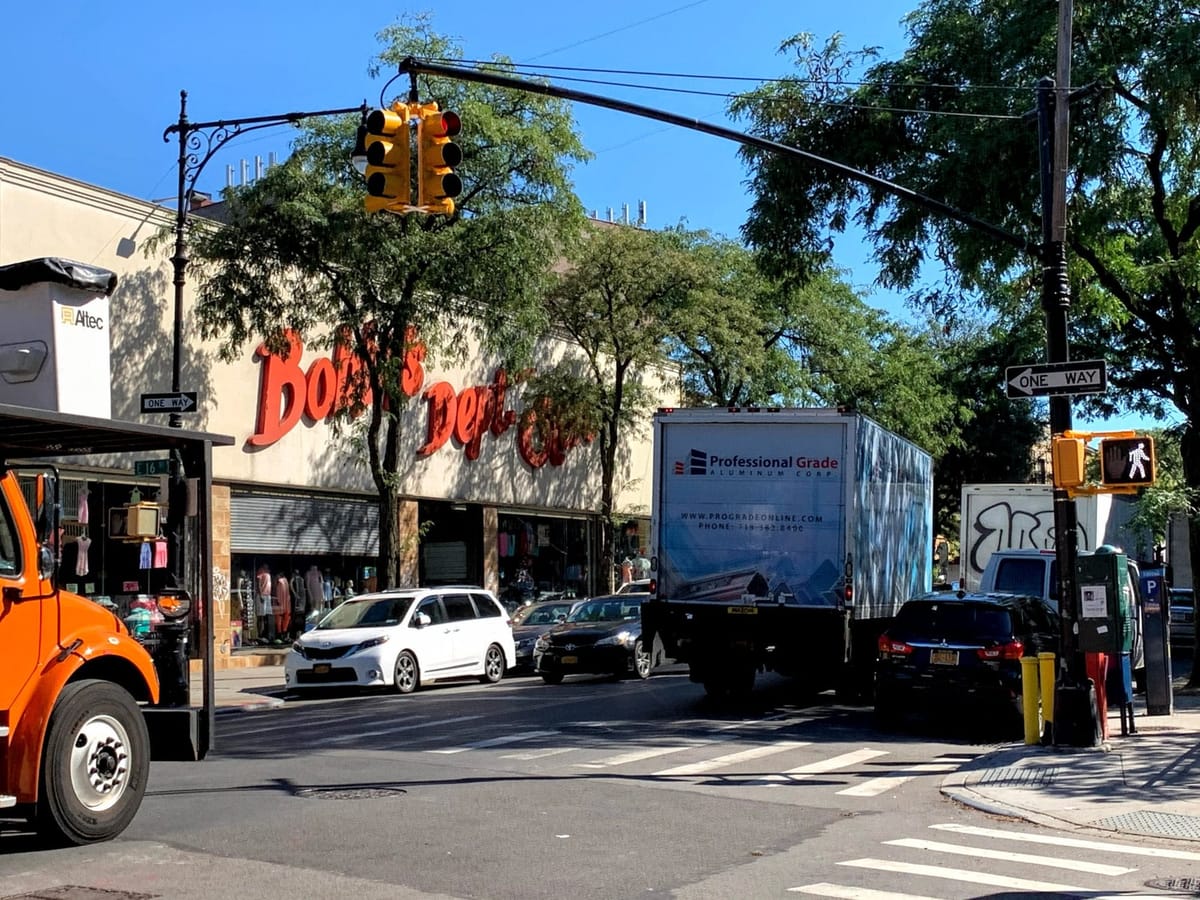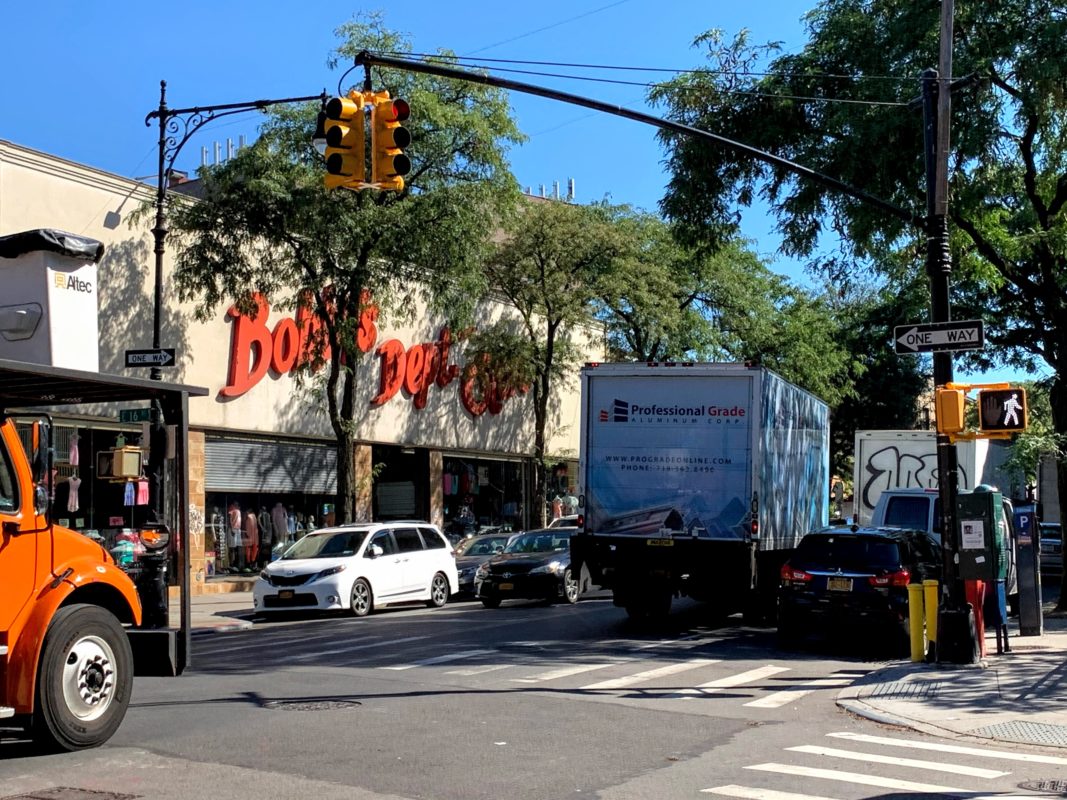Climate Justice Begins With a Green New Deal – OPINION


If we learned anything from New York City’s response to the COVID-19 pandemic, we learned that fighting a global crisis requires a sense of urgency from all levels of government.
Now, just as we have worked hard to try to contain the virus, we have a unique opportunity to build a greener, more inclusive, and more resilient economy to fight the other global crisis: climate change.
While climate change affects everyone, the reality of the situation is that marginalized communities are most impacted. This discrepancy can and should be thought of as a form of environmental racism. Decades of racist, segregationist housing policy pushed Black and Brown New Yorkers into the most heavily polluted parts of our city.
This history of environmental racism has led to higher rates of asthma, lead exposure, and other severe health problems among communities of color. Unsurprisingly, these are the same communities that were hit hardest by the COVID-19 pandemic, with Black and Hispanic populations making up 62% of all COVID-19 deaths in NYC, despite making up just 51% of the City’s population.
In order to rectify these wrongs, we must invest in a Green New Deal that touches on every aspect of our lives at all levels of government. Change begins at the local level, so cities have a distinct responsibility to lead on this front. Cities have a unique opportunity to build back better, with a plan for the economy and environment that centers communities of color. NYC is responsible for running our public transportation systems, waste collection systems, drinking water, public housing, parks, and much more.
We need unprecedented investments in public housing. Put simply, NYCHA needs more money to better serve its residents. NYCHA is the largest provider of affordable housing in New York City, and predominantly serves communities of color and communities with high unemployment. NYCHA is also chronically underfunded and continues to face a growing repair backlog. Notably, NYCHA has struggled to remove lead paint in its buildings because of a lack of funding. Our city has an opportunity to combine much needed repairs with green structural improvements, and to revitalize public housing while improving residents’ health and safety and creating good, green jobs.
We need to invest in our transportation systems, to get people out of their cars and using public transit. This starts with creating more dedicated bus lanes and more frequent buses and subways. Council District 40, which I’m running to represent, is serviced by the B12, B35, and B49 bus lines and the B, Q, 2, and 5 subway lines. We have to fund not only subway improvements through the MTA capital plan, but bus service improvements as well.
Council District 40 should be first-in-line for improvements, given that it has one of the most unreliable bus routes in NYC. We also need to encourage biking by supporting increased bike lane infrastructure. Furthermore, we must decarbonize transportation networks. The MTA’scommitment to fully electrify buses by 2040 is welcomed, but it is crucial that, throughout the rollout, the MTA commits to an equitable and transparent process to improve air quality in low-income communities.
Additionally, We need to address our city’s food waste crisis through community initiatives for local gardens and compost sites. The amount of food wasted in NYC is on average 8.4 pounds per household per week. We can restore and expand funding for organics collection, which has the potential to divert significant waste from landfills, and reduce the release of methane gas. Additionally, producing and using compost also creates significantly more jobs compared to landfills.
Achieving climate justice will require bold steps as big problems require big solutions. New York City businesses need to be retrofitted to be 100% sustainable and carbon-free by using renewable energy sources. We need a Green Jobs Corps in Brooklyn and the other boroughs. I support closing Rikers and converting it into a solar farm, in alignment with recent City Council proposals. Lastly, we need to drastically reduce meat purchases from NYC public schools for meals served. At PS6, where I teach, we are proud to implement meatless Mondays. I support spreading this practice to all public schools.
While the President willingly ignores scientific reality, I am proud to be decidedly pro-science. When developing policies for an issue as impactful as climate justice, it is crucial that all decisions are data-driven. The data makes it clear that if our City does not act decisively, the problems marginalized people face today will only continue to get worse and more drastic decisions will have to be made.
The question that our City faces now is: will we stick our heads in the sand and ignore growing problems until they’re too big to mitigate, or will we work towards a better future where people of color, women, LGBTQIA+, disabled, and other marginalized groups do not bear the brunt of adverse effects brought about by climate change
The time for a Green New Deal is now.




